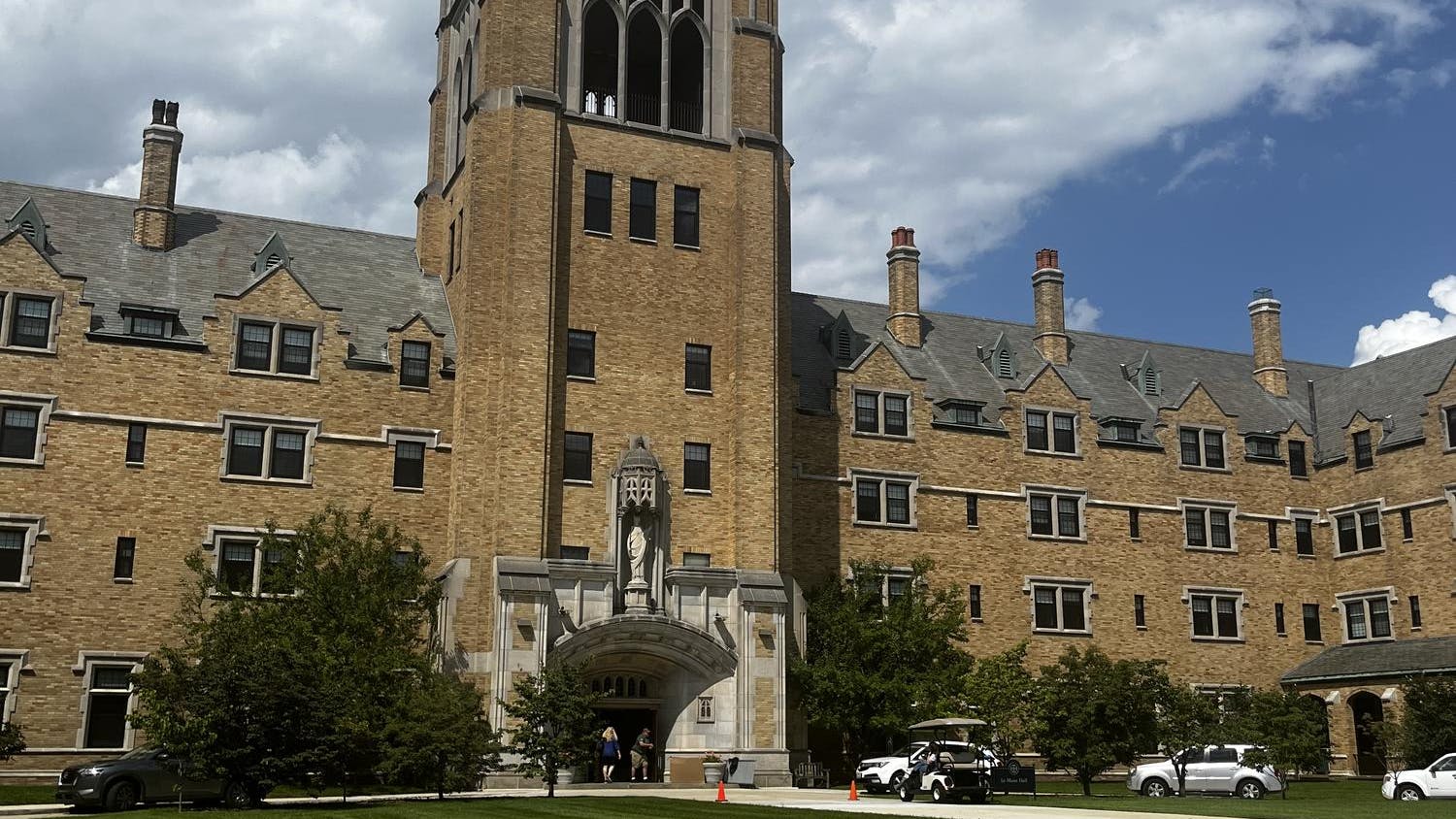With 65 different undergraduate degree programs offered at Notre Dame, each student graduates with a different body of knowledge behind his or her diploma. This year, the Notre Dame Forum will examine the most important common lessons by tackling the question, "What do Notre Dame graduates need to know?"
University President Fr. John Jenkins told The Observer on Monday that Notre Dame’s ongoing curriculum review determined this year's theme. Jenkins said the discussions at these events would help inform Notre Dame’s academic policy and would reflect on how today's students can best serve the world and the Church.
“What [the University is] going to have to do is listen to [the Forum speakers] and say, ‘Okay, are there implications for our requirements? For what we do at Notre Dame? For the education we offer? For what we require for a Notre Dame degree?’” Jenkins said.
The first Forum event on Sept. 15, “Taking a Scientific Approach to Science Education,” will feature Carl Weiman, Stanford University professor and winner of the Nobel Prize in Physics, in the DeBartolo Performing Arts Center. An Oct. 6 event will feature both Catherine Cornille, chairwoman of Boston College’s theology department and Cyril O'Reagan, Huisking professor of theology at Notre Dame, and Duke University president Richard Brodhead will speak Nov. 4.
University student body president Lauren Vidal said she hoped students would take advantage of the opportunity to learn from those featured at each Forum event.
"The Notre Dame Forum continues to get stronger each year,” she said.
Although each event has a specific academic focus, Jenkins said he hopes the Forum brings to light the importance of a breadth of education for each college graduate, reflected in the University’s core requirements.
“Currently, there are requirements that every student needs to take in science, in philosophy, theology, social science [...] and I think the thought is that for any educated person, they should have some knowledge of the scientific method or scientific discoveries, even if your major is business or English,” Jenkins said. “Similarly, if you’re a physicist, you should know about literature and you should know about philosophy or theology. Really, we all need a broad range of knowledge.”
The forum will hopefully also stimulate student introspection, Jenkins said.
“Everyone needs to think about, ‘what do I need to know?’ – whatever my aspirations are, what do I need to know to be a good citizen, to be a person who’s informed, to make good decisions about the range of issues that I will have to make decisions about?” he said. “So I hope it stimulates reflection for each and every student on what they need to know, because ultimately they are the ones that are responsible for their own education, preparing themselves for the future.”
The Forum, an annual tradition at Notre Dame since 2005, looks to foster discussion within the University community, Jenkins said.
“The challenge of universities, of course, is that sometimes we have various conversations going on but we don’t all bring them together," Jenkins said. “The purpose of the Forum is to choose some topics that are timely in some way so that faculty and students – and really the whole University – can engage those at some level.”













